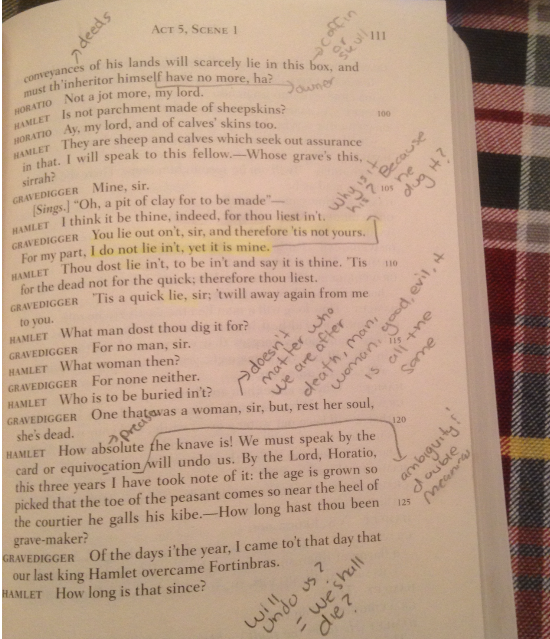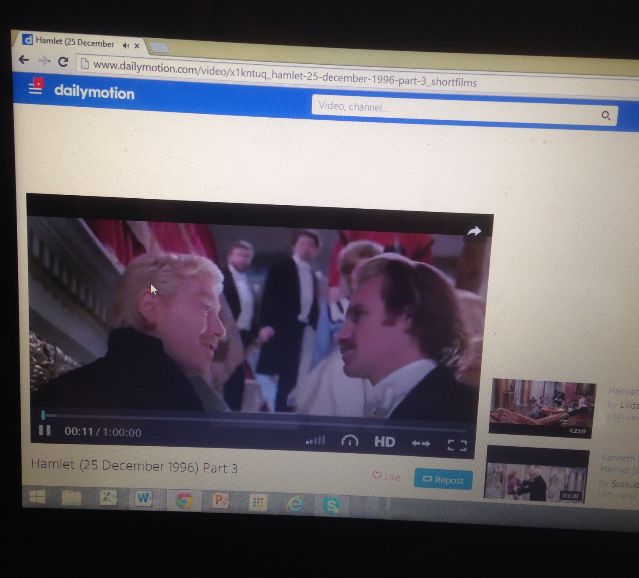

In English 311 this semester I have watched Kenneth Branagh’s 1996 Hamlet and read the Robert S. Miola edition of the play while I watched. In the text, Hamlet watches the Grave-maker treat the skulls of the dead playfully, tossing them about instead of mournfully preparing them for the graves (5.1.87-98). Hamlet talks about one of the skulls and questions whether it might have once been a lawyer. He then contemplates how the proposed lawyer comes to be in such a state of powerlessness in death, being unable to take any action against the careless gravedigger or claim ownership of anything except his grave.
In Branagh’s film, Branagh, playing Hamlet, delivers these lines as if he is sort of amused at the same time as being confused that death makes life seem so meaningless. He doesn’t seem angry but more like he is accepting that it doesn’t matter that much what a person is or does during life because death comes for everyone and it means that in the end you have nothing. Perhaps this is also a statement on revenge and love meaning nothing as Hamlet tries so hard to take revenge on Claudius for his evil deeds against Hamlet’s beloved parents and in the end almost everyone is taken by an undiscriminating death. The way Branagh plays with the word ‘recognizance’ makes it sound like he is laughing at the lawyer for working so hard to achieve what he had during life because it doesn’t matter to anyone after his death, least of all the grave-digger playing with his skull. Hamlet seems to be laughing at the absurdity and meaninglessness of life in general.
Leave a Reply
You must be logged in to post a comment.